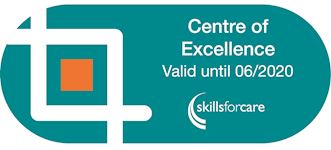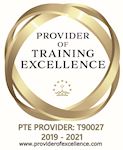Care Certificate - 15 Care Standards Knowledge Outcomes - Skills for Care Endorsed
Video online training offering flexible training on any device at a time that meets your schedule, full course support
ProTrainings Europe Limited
Summary
- Certificate of completion - Free
- Tutor is available to students
Add to basket or enquire
Overview
Care Certificate - 15 Care Standards Knowledge Learning Outcomes video online course comes with free downloads, CPD Certified and evidence-based learning statement. This Care Certificate course covers the knowledge-based units and includes 15 standards and recommendations set out by the Health Education England, Skills for Care and Skills for Health and is designed for all new employees. The course is mapped and covers all of the required Knowledge-Based Units and delegates will be provided with full evidence-based learning statements to document the learning process during the course, this is in addition to the final exam.
ProTrainings are Endorsed by Skills for Care for both classroom and e-learning courses.
This Care Certificate course covers the knowledge-based units and includes 15 standards and recommendations set out by the Health Education England, Skills for Care and Skills for Health and is designed for all new employees.
The course is mapped and covers all of the required Knowledge-Based Units and delegates will be provided with full evidence-based learning statements to document the learning process during the course, this is in addition to the final exam. We also provide a training portfolio that can be used to document an employee’s training during the care certificate and for their continued workplace development, delegates also receive a tracking document that can be used by the care manager to evidence the completion of the competency-based units, which enable the care manager to ensure that all of the practical requirements have been met before issuing the care certificate.
The Care Certificate is a requirement for all staff beginning their career in the care sector, ideally, it should be completed before starting work and must be completed within twelve weeks from the commencement of employment. This course is also suitable for existing staff to refresh or improve their knowledge. The online course is available with a practical module locally to rehearse practical skills where required. We can also integrate classroom-based and online qualifications to expand knowledge and build training packages. Where required, we offer many regulated qualifications to support your training in the care sector and these can be integrated with your care certificate training package.
The content of this and all our courses have been independently certified as conforming to universally accepted Continuous Professional Development (CPD) guidelines and come with a Certified CPD Statement as well as a ProTrainings Certificate and for online courses an Evidence-Based Learning statement.
Why are ProTrainings online courses different?
Unlike other e-learning courses, ProTrainings use just videos training rather than reading PowerPoint text which makes our courses more engaging. You do not have to complete the course in one sitting, stop and return whenever you want. You have 8 months to complete the course and you can even view the course after you pass giving you access to new videos and downloads. Your certificate can be printed immediately on completion along with your certified CPD and Evidenced-based learning statement to evidence your qualification.
Under every video, we have added text to support the video and you also receive manuals and downloads free. To keep your skills fresh, you can opt for free weekly refresher videos. You are assessed during the course and at the end, there is a final multiple-choice test. If you get a question wrong you will be given support to ensure you understand every part. You can re-take the test without charge. This may be an online course, but you can still contact us by phone, online chat or email.
If you require classroom training or practical evaluations these can be arranged nationally at your workplace.
No more old-fashioned, cut-rate PowerPoint training — your health and safety are too important to cut corners.
- Downloadable student manuals
- Course resource section where you will find downloads and links to support training
- Video-based & instructor-led
- Expiry reminders
- Optional weekly video refresher emails
- 8 months of access to videos
- 24/7 on-demand video
- Watch from any device
- Access on mobile
- Instantly printable wall certificate
- Customer support by online chat, phone or email
- All CPD certified courses
- Expiration reminder
- ProTrainings are an ISO 9001:2015 and ISO45001:2018 registered firm
- Evidence-based Learning statements
- ProTrainings are Endorsed by Skills for Care for classroom and e-learning
- We have over 1000 registered and monitored instructors nationwide offering classroom courses
- We can teach courses at your workplace
- Free company training dashboards
- Earn commissions by referring training lead
Achievement
Certificates
Certificate of completion
Digital certificate - Included
CPD
Course media
Resources
- ProTrainings accreditation booklet - download
Description
You will get automatic discounts off all our range of over 200 video online courses that you chose to take in future once you purchase and have access to this course. You will also receive a free training dashboard, downloads and access to the latest course material from ProTrainings.
ProTrainings are Endorsed by Skills for Care for both classroom and e-learning courses.
Curriculum:
Standard 1 - Understand Your Role Introduction to Standard One - understanding your role Your responsibilities and working with your employer Rights and responsibilities at work Agreed ways of working Effective partnership working Experience, attitudes and beliefs
Standard 2 - Your Personal Development Your personal development standard introduction Working in the care sector Developing your knowledge, skills and understanding Learning and development Receiving feedback Supervision, appraisal and objectives
Standard 3 - Duty of Care. Addressing dilemmas within your duty of care Duty of care Recognising and handling comments, complaints and incidents Managing conflict and difficult situations How to deal with comments and complaints Supporting independence
Standard 4 - Equality and Diversity Introduction to the Equality and Diversity Standard About equality and diversity
Standard 5 - Working in a Person-centered Way Introduction to working in a person-centered way Working in partnership with others Record keeping in care The Care Plan Importance of finding out history, preferences, wishes and needs of the individual Minimising environmental factors that may cause discomfort Person-centred values in practice Supporting individuals to minimise pain or discomfort Working to promote person-centred values Support individuals to plan for their future well-being and fulfillment, including end-of-life care.
Standard 6 - Communication Introduction to The Communication Standard Effective communication in the work setting Language and other needs in communication Verbal and non-verbal communication Skills Communication Different methods of communication Dealing with aggression Defusing potentially dangerous situations Recognising danger signs
Standard 7 - Privacy and Dignity Introduction to the Privacy and Dignity Standard Dignity and respect Patient dignity Confidentiality in the workplace Making choices Privacy of information Supporting active participation
Standard 8 - Fluids and Nutrition Introduction to the Fluids and Nutrition Standard High risk groups of people for food safety Cross-contamination direct and indirect Preventing cross-contamination The importance of nutrition Guidelines for a healthy diet Dehydration Hydration Fluids and hydration Nutrition and the elderly Diets for people with dementia
Standard 9 - Awareness of Mental Health, dementia and learning difficulties What is dementia Classifications of dementia Early Diagnosis of dementia and reporting Risk factors affecting the chance of developing dementia Helping people with Dementia Things that can help people with Dementia Helping the carer Diet , Meals and Dementia A healthy body Adapting the environment Communication and Dementia The Safeguarding of Vulnerable Groups Act 2006 The Human Rights Act 1998 Discriminatory abuse and the Human Rights Act Mental Health Conditions MCA assessment criteria MCA assessment What is Mental Capacity Act
Standard 10 - Safeguarding Adults Adult safeguarding. What is SOVA CQC or The Care Quality Commission The Protection from Harassment act 1997 The Sexual Offences Act 2003 The Mental Capacity Act 2005 The Mental Capacity Act and Deprivation of Liberty Safeguards principles Facts and information about abuse Who is a vulnerable adult Vulnerable adults and the risk of harm Physical abuse Psychological abuse Sexual abuse Financial Abuse Neglect, self neglect and the act of omission Institutional/organisational abuse and discriminatory abuse Consent Disclosure The importance of individualised person-centred care to ensure an individual's safety Responding to suspected or disclosed abuse Managing risk and multi-agency safeguarding of adults Reporting abuse Whistle blowing How to whistle blow Serious case reviews an sources of advice and information
Standard 11 - Safeguarding Children Child protection. Legislation relating to safeguarding children The Acts and safeguarding children Serious Organised Crime and Police Act 2005 What is child abuse Emotional abuse Physical abuse Sexual abuse Other types of child abuse Every child matters Children's rights Neglect and the act of omission Every child matters Working with others Key supporting information What children want from professionals Protecting yourself against allegations Reporting child abuse
Standard 12 - Basic Life Support. Fears of first aid Asking permission to help Calling the EMS Chain of Survival DRAB and ABCDs Initial assessment and recovery position Barriers and gloves Adult CPR introduction Adult CPR CPR handover Compressions only CPR Child CPR Child CPR Breakdown Infant CPR Drowning AED Introduction Types of AED unit Adult choking Child choking Infant choking
Standard 13 - Health and Safety Introduction to the health and safety standard Tasks that require special training The importance of health and safety What causes accidents When an accident happens Health and safety Law Employee and employer responsibility Workplace and personal security The accident triangle Why prevention is important The 5 stages of risk assessment What is a hazard Personal Protective Equipment - PPE Working Safely and Securely Hazardous substances in your workplace COSHH regulations Employee duties under COSHH The Fire Triangle Calling the Fire Service Evacuating in an emergency Care home evacuation Good house-keeping Electrical hazards Managing stress Managing stress, depression and anxiety The Manual Handling Regulations What is manual handling and why is it important How and why we lift correctly Before we start moving and positioning people LOLER and PUWER regulations Other relevant acts Ability Test Independent sit to stand Supported sit to stand Assisted sit to stand Chair to chair transfer Assisted walking Fall prevention The Falling Person Assisting the Fallen Person Walking frames Using a wheelchair Medications and healthcare activities and tasks
Standard 14 - Handling Information Handling Information Standard Induction Handling information in health and social care Data Protection The Information Commissioners Office The freedom of Information act Data Protection act 1998 Who holds personal information Who has rights and obligations under the data protection act Myths and realities of data protection Public authorities and freedom of information Record Keeping, Management and Individuals rights Obligations and duties of Data Controllers, the data protection principles Data Principle 1 Data Principle 2 Data Principle 3 Data Principle 4 Data Principle 5 Data Principle 6 Data Principle 7 Data Principle 8 Reporting concerns
Standard 15 - Infection prevention and control Introduction to infection control What are bloodborne pathogens? Infection control legislation Who is at risk? Types of infection Skin diseases The chain of infection First aid infection control What are blood born pathogens Contaminated Objects Contaminated linen Cross-infection Example of indirect cross-contamination How to reduce your risk Surface cleaning Hazardous disposal procedures Hand hygiene policy Use of gloves Hand washing Water-less Hand Gels
Who is this course for?
Care workers Nurses Social care Health care assistants Assistant practitioners Care support workers Anyone supporting clinical roles in the NHS where they have direct contact with patients Home care workers Porters Volunteers Cooks Drivers
Requirements
You can view this course on any device connected to the internet. This includes Windows and Mac computers and laptops, iPad's including the iPad mini and Pro, iPhones, Android phones and tablets. The course will adapt to the format of the device you choose.
Career path
Anyone entering the care sector and needs supporting knowledge training to get put towards the care certificate.
Completing this course will help you in many different career paths to make your CV stand out from a crowd. All our qualification certificates can be validated online by prospective employers giving much more credibility than other providers.
Questions and answers
Hello The care certificate is valid just for one year? Thanks Susana
Answer:The Care Certificate course comes with a 1-year nationally recognised certificate and 15 hours CPD statement. It should be completed by new staff and competency reassessed annually
This was helpful.Does this in clude a hard copy certificate at the end.
Answer:Hello Ayesha, Thank you for your question regarding the ProTrainings Care Certificate training course. Upon completion of this course you will have access to a downloadable Certificate, CPD Statement and other useful resources. You also have the option to obtain a hard copy certificate posted to you, should you require. Kind Regards Customer Support
This was helpful.
Reviews
Currently there are no reviews for this course. Be the first to leave a review.
Legal information
This course is advertised on reed.co.uk by the Course Provider, whose terms and conditions apply. Purchases are made directly from the Course Provider, and as such, content and materials are supplied by the Course Provider directly. Reed is acting as agent and not reseller in relation to this course. Reed's only responsibility is to facilitate your payment for the course. It is your responsibility to review and agree to the Course Provider's terms and conditions and satisfy yourself as to the suitability of the course you intend to purchase. Reed will not have any responsibility for the content of the course and/or associated materials.




